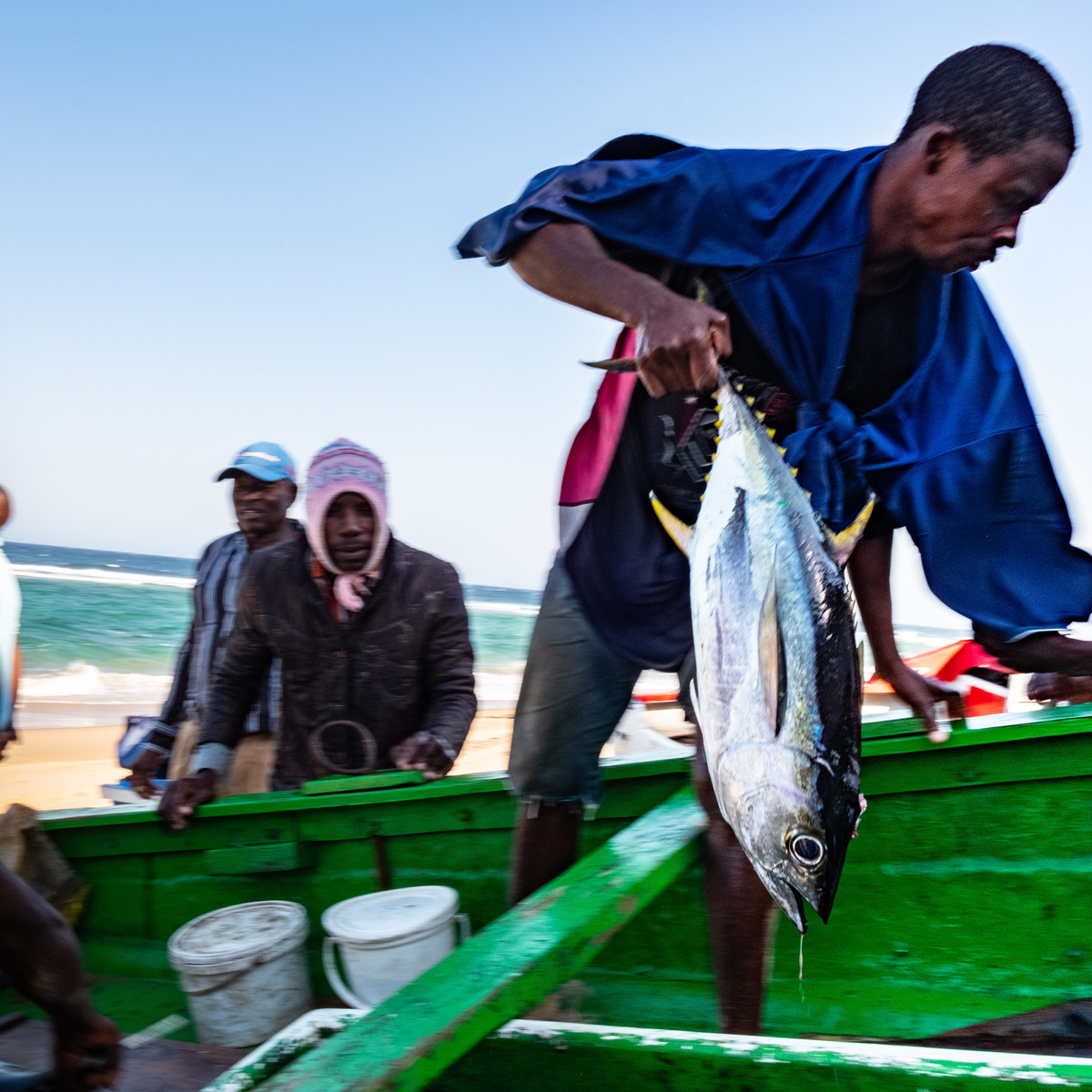UPDATE:
On May 13, 2021, Rare’s Fish Forever program, together with Mozambique’s coastal fishing communities, achieved another milestone alongside the recent landmark regulation empowering community-based management in Mozambique. Two demarcation buoys placed in the Bembi no-take reserve in Maputo province, in Southern Mozambique off the Machangulo coast, mark the country’s first no-take reserve to be put under community-led management. Rare’s Atanasio Brito and Edson Anselmo Jose were on hand to celebrate the milestone.
The no-take reserve, which two local fishing communities will co-manage, will protect over 3,000 hectares of coastal ocean waters while building food security and safeguarding coastal community livelihoods. The managed access fishing area, which fishing communities will also manage, surrounds the reserve. Placing these buoys, which may appear to be a common and straightforward activity for fishing communities, symbolizes incredible progress and hope for community-based fisheries management in Mozambique.
On September 1, 2020, the government of Mozambique approved a landmark regulation empowering community-based fisheries management while paving the way for healthier ocean ecosystems.
The Ministry of Sea, Inland Waters and Fisheries (MIMAIP) approval of the revised Fisheries Maritime Regulation (REPMAR) is a major step toward giving coastal communities the formalized right to access and steward coastal waters for their fisheries. It also enables communities to set up locally managed marine reserves where fishing and any other invasive activities are off limits allowing fish populations to rebound.
This system of “managed access plus reserves” is a core part of Rare’s Fish Forever approach to sustainable coastal fisheries management. Communities along the Mozambican coastline now have a clear path toward receiving legal recognition for their proposed managed access areas.

“This is a huge step forward for coastal communities in Mozambique, which depend on the sea for food and jobs,” said Angelica Dengo, Vice President of Rare Mozambique. “Giving communities the legal protections to manage their coastal waters sustainably, as well as their rights to fish those waters, has been something we’ve been working on for a long time.”
The regulation has been under consideration for five years. During this period, Rare provided MIMAIP with technical expertise in community-managed fisheries gathered through local projects supported by the Nordic Development Fund through the World Bank, the Blue Action Fund, and the Swedish International Development Agency (Sida) through the International Union for Conservation of Nature (IUCN). Under the leadership of Mozambique’s new MIMAIP Minister, Augusta Maita, the regulation was confirmed by the Council of Ministers.
“Providing a clear legal pathway is fundamental to scaling the Fish Forever approach in Mozambique, which we know can benefit both people and nature, by balancing effective protection with sustainable production,” said Dr. Steve Box, Managing Director of Rare’s global Fish Forever program.
The new regulation will impact a large swath of the country’s population. More than half of the population live on the coast. With 85 percent of all of Mozambique’s fish caught by small-scale fishers, the sector has a major impact on national food security, as well as local economies.
Mozambique’s coast is the fourth longest in Africa and its waters are home to some of the greatest biodiversity on the planet including more than 1 percent of global coral reefs and two percent of global mangrove forests. The new fisheries regulation also prohibits trawling in coral reef areas, and the country has also recently approved the strategy and plan of action for mangrove management, 2020-2024.
“Small-scale fishers and healthy coastal fisheries are the backbone of local economies up and down Mozambique’s coast,” said Dengo. “This rule not only empowers communities, but it is an investment in the health of coastal fisheries on which these economies depend.”